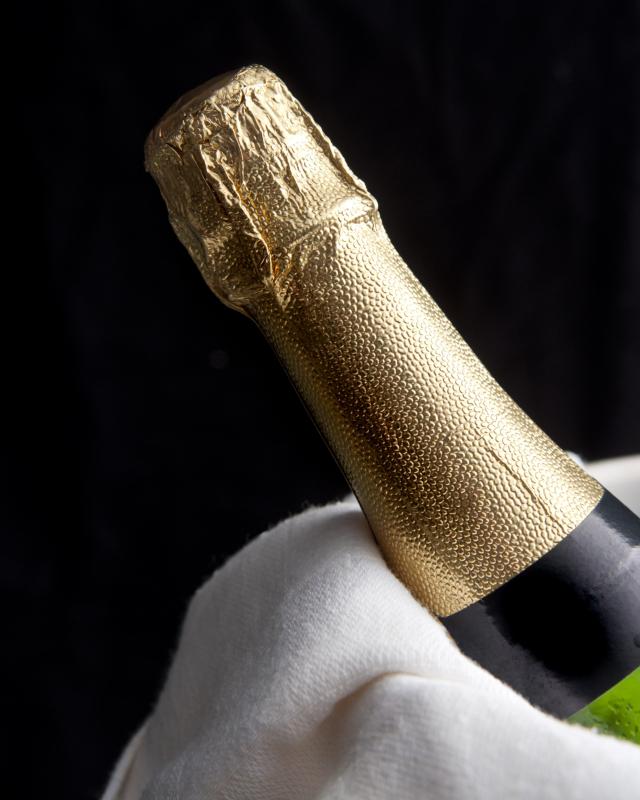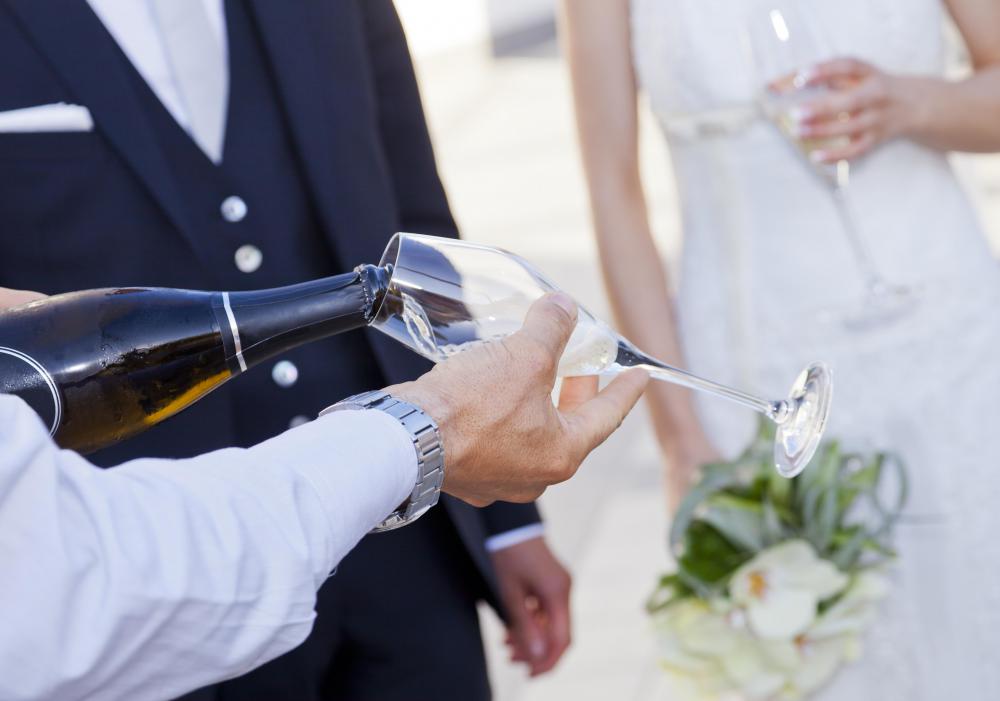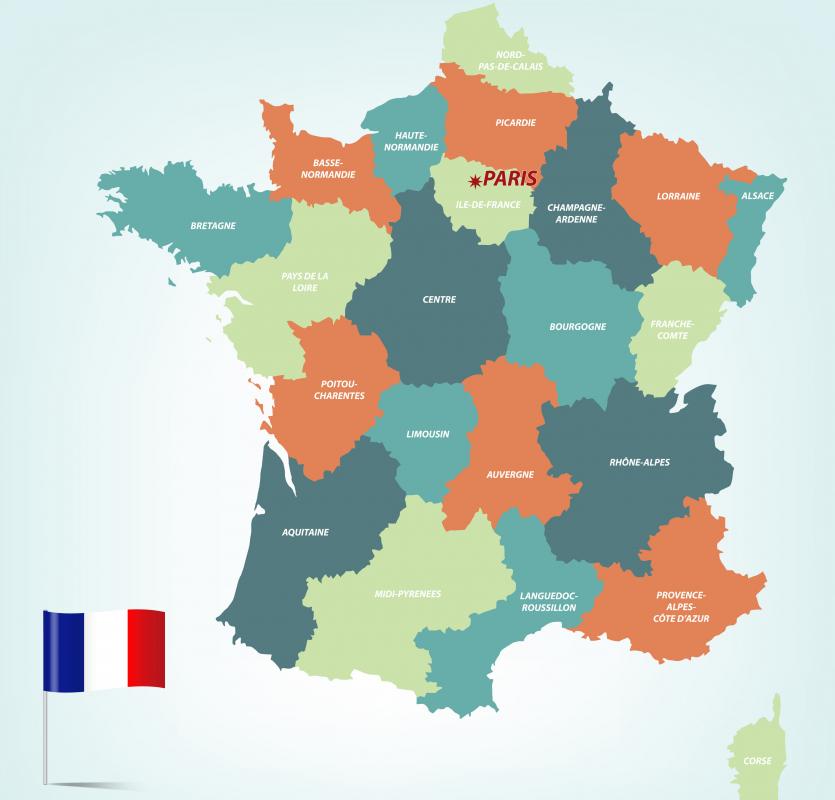At DelightedCooking, we're committed to delivering accurate, trustworthy information. Our expert-authored content is rigorously fact-checked and sourced from credible authorities. Discover how we uphold the highest standards in providing you with reliable knowledge.
What is the Difference Between Prosecco and Champagne?
There are many differences between prosecco and champagne, though both wines come from Europe, are effervescent, and tend toward a dry rather than sweet flavor. Yet each is limited by definitions placed on it by country, and while there are many brands of each type produced, they have to be produced in very specific ways. Some other differences include aging and pricing.
First, champagne has a specific definition. It is effervescent wine made in the Champagne region of France. It can only be produced there and all other wines that are effervescent are sparkling wines. Even when the champagne giant Louis Roederer, known for Cristal, began to produce champagne-like wines in the Anderson Valley in California, these could not be called champagnes. Instead they are sparkling wines because they are not made in the designated French region. This doesn’t make such wines inferior, but it does mean they’re not champagne.

When considering prosecco, there are some similarities. Prosecco obviously cannot be champagne since it is made in Italy. Like champagne, real versions of this sparkling wine are limited to being produced in a specific region of Italy called the Veneto region. A person can’t make this wine anywhere else, even if he uses the same grapes and the same process.

Other differences between the wines exist, and one of these is storage. Usually it’s an advantage to drink the Italian wine early, while champagne is best when bottled for a few years. Process is slightly varied too. Part of the fermentation process in prosecco doesn’t occur in the bottle, meaning the wine can produced with greater speed and is ready sooner.

Given these comparisons, it would seem that prosecco is necessarily inferior to champagne, but this is definitely not the case. Though these wines can be viewed as somewhat lighter, they are often thought of as excellent champagne substitutes due to their dry quality. Other Italian sparkling wines tend to be much sweeter, like Asti wines. This is not the case with the Veneto produced wines and they may be comparable in taste, flavor and appeal to the more modest champagne versions. Some suggests the Italian wines have a lighter, less serious approach that is especially pleasant in informal gathers.

For those who enjoy the Italian sparkling wine, one of the last comparisons that can be made is price. The average high quality prosecco is often half to a fifth of the price of more seriously regarded champagnes. This could make these wines ideal in small or large gatherings, such as at weddings or large anniversary celebrations, where folks have a little less to spend. They could also prove a savings for catered affairs where sparkling wine is expected but quality is expected, too.
AS FEATURED ON:
AS FEATURED ON:















Discussion Comments
Oh for Pete's sake. Are all of you daft? Does it taste about the same? That's all anyone really needs to know. As long it doesn't taste like crap, I'll try it. I hate being fleeced by labels and pretentious trappings that mean nothing.
Oh my. Some issues here. "Though these wines can be viewed as somewhat lighter, they are often thought of as excellent champagne substitutes due to their dry quality."
Where are you finding all this cheap and dry prosecco? The charmat method to produce this wine (with it's large two/three story tall tanks) gives the wine fairly harsh bubbles that are masked with the addition of quite a bit of sugar. More so than in Champagne.
@anon297133: Champagne is not made from champagne grapes. It's made from chardonnay, pinot noir and pinot meunier.
If established after 2006, only houses located in the geographical champagne region can use the term champagne. All others must use sparkling wine. In the event that the winery was established before this law was enacted, a geographical clarifier must be used, ie: Andre California champagne.
You can buy ultra premium prosecco, but it's price will rarely match that of champagnes, which have very high recognition status and marketing history. That being said, quality does not correlate unerringly to price; you can find great prosecco that will stand up to fine champagne.
The most important and basic difference between prosecco and champagne is the kind of grapes used int he wine production. Champagne is made with champagne grapes while prosecco is made with glera grapes, from northeastern Italy.
@googie98: Prosecco is a fairly inexpensive selection. It can range from $10 to $60, depending on the brand. Some of the most popular brands of Prosecco are Adami, Mionetto, Nino Franco, and Zefiro.
Champagne is pretty much the same theory but tops out at a much higher price. For example, you can get a bottle of Korbel Sparkling Natural Chardonnay for about $13. For the high rollers, you could buy a bottle of Cristal Brut 1990 Methuselah for $17,625.
Is there a big price difference in prosecco and champagne?
Post your comments